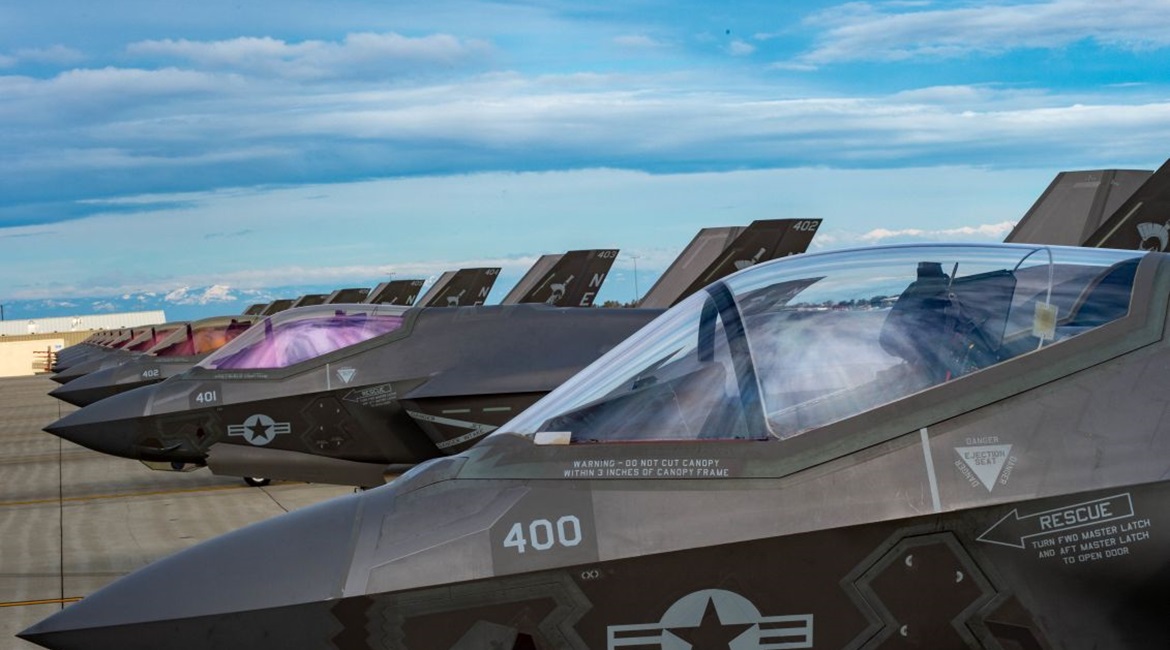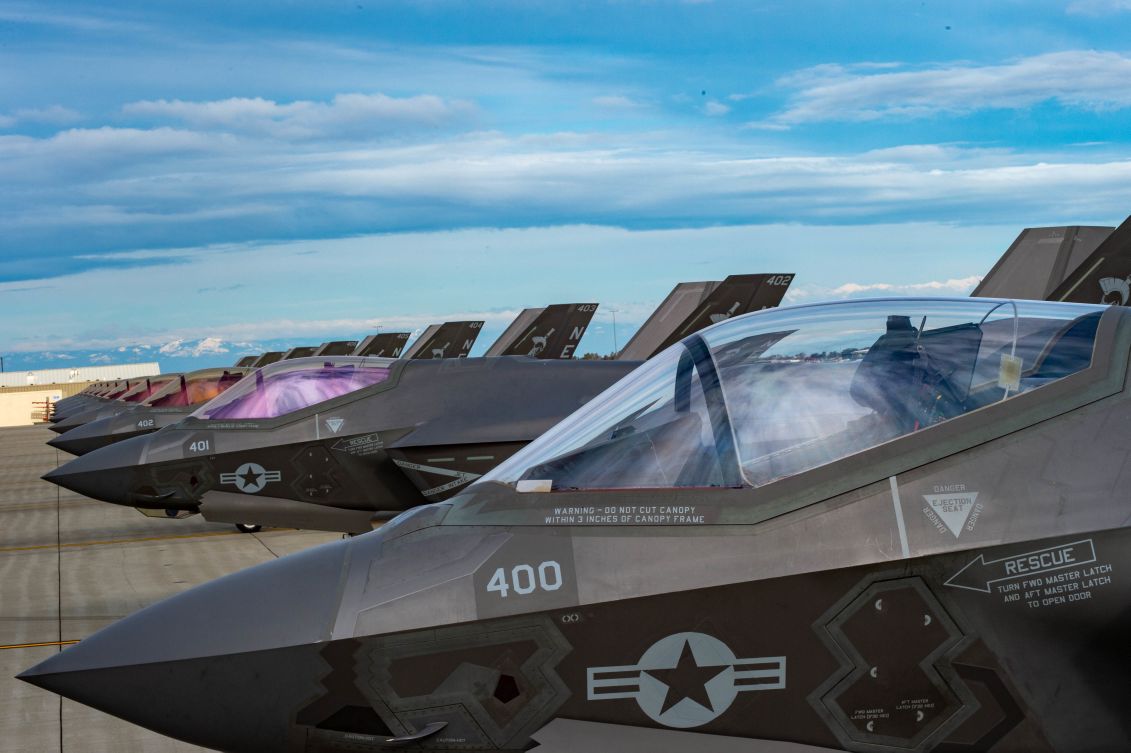
The Pentagon is investigating how to extend the life expectancy of the Lockheed Martin F-35 Lightning II Joint Strike Fighter’s (JSF’s) organic light-emitting diode (OLED) helmet-mounted display (HMD), according to a Pentagon spokesman.
F-35 Joint Program Office (JPO) spokesman Lieutenant Commander Keith Goodsell said on 13 March that extending the life expectancy of the HMD beyond its projected four years would reduce sustainment costs, a major focus for the Pentagon. The JPO completed a redesign of the OLED HMD in 2019 after pilots using the Generation 3 HMD reported a green glow, or a condition where light leakage around the edge of the display during low light conditions made reading the projected information difficult.

Ten F-35C aircraft sit on the flight line at Naval Air Station Lemoore in California on 28 February 2019. The Pentagon is looking to extend the life expectancy of the F-35’s organic light emitting diode (OLED) helmet-mounted display (HMD) beyond its projected four years to reduce sustainment costs. (US Navy)
The Pentagon’s Director of Operational Test and Evaluation (DOT&E) said in his fiscal year 2016 (FY 2016) report released in December 2016 that the green glow issue, at the time, had two open “Category 1 High” deficiency reports with the most significant safety concerns pertaining to night-time carrier operations. Lt Cmdr Goodsell said that the OLED HMD redesign has been released for production and that initial deliveries from the first lot have been delivered to the US Navy (USN), operator of the F-35C aircraft carrier variant, and the US Marine Corps (USMC), which operates the F-35B short takeoff and vertical landing (STOVL) model. The F-35 helmet joint contract specification requirements have been met, Lt Cmdr Goodsell said.
Jane’s
Looking to read the full article?
Gain unlimited access to Janes news and more...




